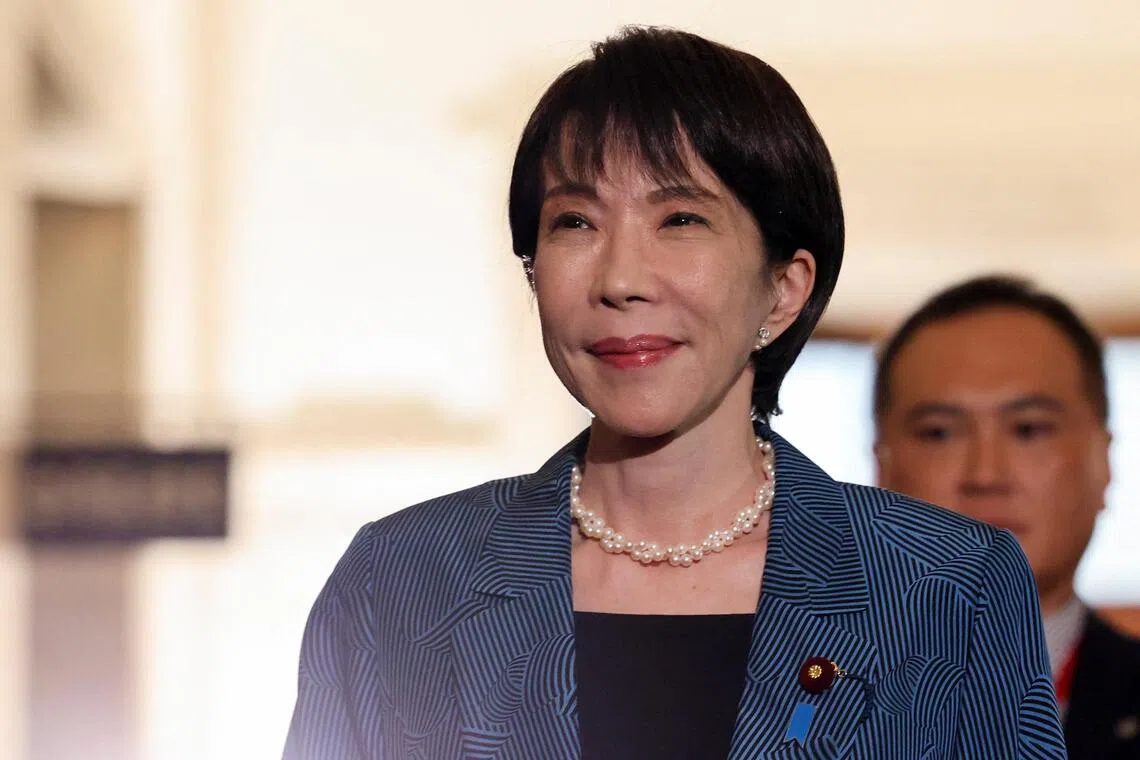Japan opposition parties brace for possible early snap election: Report
Sign up now: Get ST's newsletters delivered to your inbox

Japanese Prime Minister Sanae Takaichi has enjoyed strong public approval ratings since taking office on Oct 21.
PHOTO: REUTERS
Follow topic:
TOKYO - Japanese Prime Minister Sanae Takaichi’s high approval ratings are prodding opposition parties to ramp up preparations in case she calls an early election, the Yomiuri newspaper reported on Nov 26.
A snap election, which some analysts say could come as soon as January, would affect the administration’s economic policies including deliberations over Japan’s annual long-term fiscal blueprint, due around June 2026.
Depending on when a vote might be called, it could also affect the timing and pace of interest rate hikes by the Bank of Japan, which typically avoids making big policy changes ahead of elections.
Mr Jun Azumi, an executive of the Constitutional Democratic Party of Japan (CDPJ) - the country’s largest opposition party - signalled on Nov 25 his party will work with other parties to win back seats from the ruling coalition, the Yomiuri said.
“There’s a good chance (the premier) could consider dissolving parliament at an early date,” Mr Yoshihiko Noda, head of CDPJ, was quoted as saying by domestic media, including Yomiuri, earlier in November.
Ms Takaichi has repeatedly said she has no time to consider a snap election, and instead would focus on implementing policies to cushion the economic blow from the rising cost of living.
Mr Yuichiro Tamaki, head of a smaller opposition Democratic Party for the People, is touring regional areas aiming to have at least one candidate run in all prefectures, the Yomiuri said. The paper did not mention the possible timing of a snap election.
A hardline nationalist and a fiscal dove, Ms Takaichi has enjoyed strong public approval ratings since taking office on Oct 21. A poll by television broadcaster FNN showed on Nov 24 her administration’s approval rating stood at 75.2 per cent.
Her 21.3 trillion yen (S$178 billion) stimulus package has driven up bond yields on concern over Japan’s finances, and raised calls for clarity on how the administration will get the country’s fiscal house in order.
Proponents of an early election hope Ms Takaichi’s popularity can help the ruling Liberal Democratic Party (LDP) win enough seats to reclaim a majority in the powerful lower house.
Takaichi was elected prime minister after the LDP agreed to form a coalition with the right-wing Japan Innovation Party, known as Ishin. Together the parties are short of a majority in the lower house, forcing the administration to heed opposition demands in passing a budget and legislation through Parliament. REUTERS

